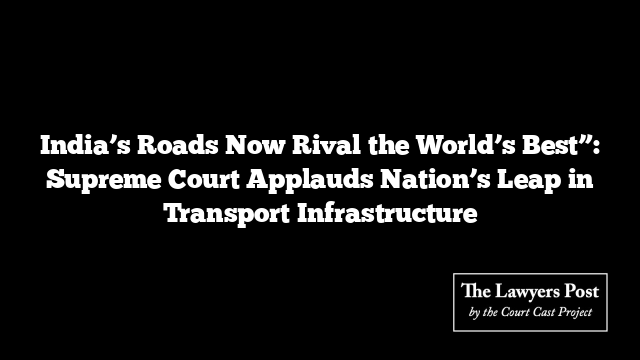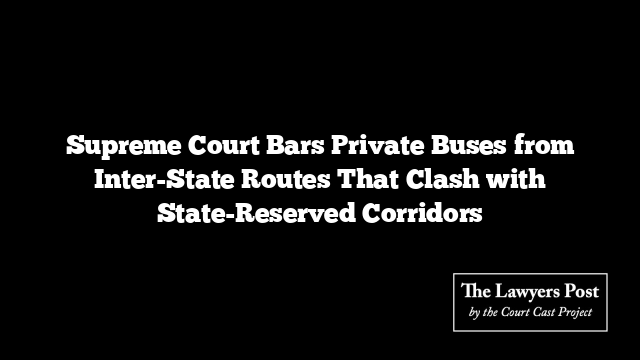In a rare moment of appreciation from the country’s highest bench, the Supreme Court has hailed the stunning transformation of India’s road network — calling it nothing short of a revolution in the nation’s transport story.
Reflecting on decades of progress, the Court noted that India has travelled far from its “humble beginnings” and now boasts a web of highways and expressways that link even the remotest hamlets with nearby towns — a genuine achievement in last-mile connectivity. “Sincere and serious attempts to revolutionise travel on road are discernible,” the bench remarked, acknowledging what it described as a quantum leap in infrastructure growth.
The judges observed that the new generation of highways and expressways has not only reshaped India’s mobility but also fuelled its economic engine. The smoother-than-ever road surfaces, they said, have enabled faster, safer, and more comfortable travel — with public transport operators offering services that could “rival those available abroad.”
The Court also turned its gaze to the electric vehicle wave, recognising that the shift to e-mobility has “facilitated sustainable transportation” and helped build a greener, more forward-looking travel ecosystem.
Technology, too, has been the silent backbone of this transformation. With digital ticketing, live-tracking apps, and automated fleet systems, several State Road Transport Corporations have moved into a new era of efficiency. The judges called digitalisation a “game changer” that has vastly improved commuter convenience and modernised operations.
Even as older buses still ply certain routes, the Court commended the introduction of e-buses and other modern vehicles that align with global standards of comfort and eco-consciousness.
Concluding its reflections, the Bench of Justices Dipankar Datta and A.G. Masih emphasised that this forward march in infrastructure must never lose sight of its true purpose — the safety and comfort of passengers. “The interests of commuters ought to be of prime concern for transport authorities,” the Court reminded.
The remarks came in a broader judgment involving private transporters and State transport corporations from Uttar Pradesh and Madhya Pradesh, where the Court reaffirmed that private operators cannot run services on inter-state routes reserved for State undertakings.
But beyond the dispute, the Court’s words carried a wider recognition — that India’s roads are no longer just a network of tar and concrete, but the arteries of a nation on the move.





